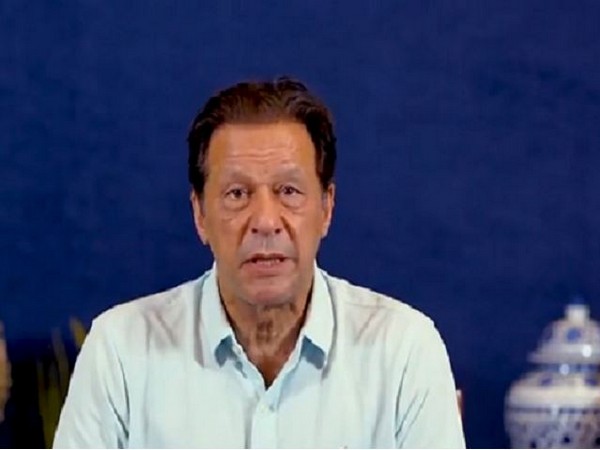
Islamabad: Former prime minister and Pakistan Tehreek-e-Insaf (PTI) Chairman Imran Khan on Sunday said that the "experiment of regime change has failed" by the new military leadership, reported Geo News.
"I'm sure amongst the new military leadership there is a realization that this experiment of regime change has gone wrong," he said in an interview with the US broadcaster, Voice of America. Since his ouster from power in a parliamentary vote of no-confidence last April, Khan has had a public falling out with the military, despite previously enjoying a close relationship with the country's most powerful institution.
While responding to a question regarding his relationship with the military as the premier, the PTI chief said that all the policies of the military in Pakistan depend on one individual.
"Military [in Pakistan] means one man, the army chief. So, the whole policy of military vis-a-vis their dealing with the civilian government depends on the personality of one man."
The deposed prime minister went on to say that the positive side of his relationship with the then-army chief, General Qamar Javed Bajwa, was his government having the "organized strength of Pakistan Army to help us".
He said that the effect of this relationship was seen in the form of Pakistan's successful response to COVID-19.
He accused then-army chief Gen. Qamar Javed Bajwa of conspiring with his political opponents to remove him from office with help from the United States -- allegations that Washington, the Pakistani military, and the government have repeatedly denied.
The "problem", according to Imran Khan, occurred when Gen Bajwa "favoured some of the biggest crooks in this country".
He claimed that the former army chief wanted his government to turn a blind eye to the "biggest problem" and work in cooperation with the corrupt leaders, "giving them immunity from their corruption cases".
Khan further stated that the former COAS had close ties with Prime Minister Shehbaz Sharif and they "conspired", and as a result the "regime change took place".
According to the ousted premier, Pakistan's economy has gone into a tailspin and the country is facing the worst political and economic crisis in history, reported Geo News.
Khan further stated that it was the security forces' negligence that allowed the Pakistani Taliban, or TTP, to resume its activities. He expressed hope that the military would stop interfering in politics and would build good relations with Washington -- despite accusing it of conspiring in his ouster, reported VOA.
Sharing his views on his demand for general elections, the PTI chief said that staging "free and fair elections is not possible anymore" as the credibility of the Election Commission of Pakistan (ECP) as an impartial electoral body had been destroyed.
"There was a local government election in Sindh, that all the political parties rejected."
While talking about Pakistan's bilateral ties, Imran Khan said that having a good relationship with Afghanistan, regardless of any government in the neighbouring country, "is inevitable for Pakistan," reported Geo News.
"Whatever government is in Afghanistan, Pakistan must have a good relationship with them," he said, adding that as the prime minister of Pakistan, he tried his best to keep up with the Ashraf Ghani-led government on good terms in order to get Kabul's help in dealing with terrorism.